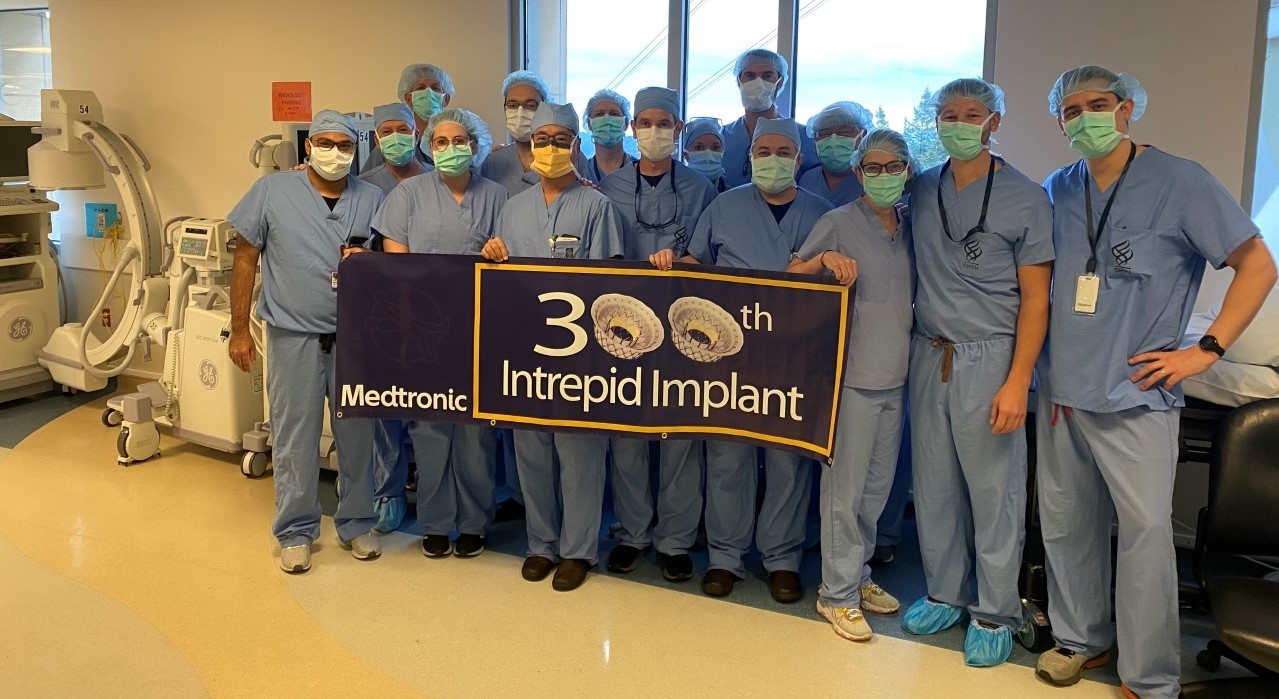Swinburne grad enhancing lives through work in MedTech

Michael Haines worked for Medtronic in America and flew around the country to engage with elite teams of cardiac physicians.
In summary
- Design and biomedical engineering graduate, Michael Haines, is helping to improve lives through his work at medical technology company Medtronic after completing an industry placement.
- Michael has been working with cardiologists to develop medical technologies that are critical to pumping blood into the body.
- Swinburne is a research leader in the field of medical technology and teaching students about electronics, software and systems engineering in health and biology.
Swinburne design and biomedical engineering graduate Michael Haines is helping to improve the quality of life of people living with chronic diseases through his work at MedTech (medical technology) company Medtronic.
After graduating from the Bachelor of Design (Industrial Design) in 2013 and Bachelor of Biomedical Engineering (Honours) in 2017, Michael says what he learnt at Swinburne enabled him to ‘hit the ground running‘ and grow his career.
‘I really enjoyed Swinburne’s commitment to technology, engineering and design. The courses gave me a hugely valuable toolkit of practical knowledge and skills that I use regularly.’
Valuable industry experience
At Swinburne, Michael completed a 12-month industry placement with Medtronic, and he has been working there ever since.
During his placement, Michael worked in the implantable cardiac device division to support the implantation and technical follow-up of devices such as pacemakers, implantable defibrillators, implantable loop recorders, and cardiac resynchronisation devices.
Michael says projects during his degree prepared him for this experience. Designing robotic systems and algorithms, software development, design and manufacturing and the use of industry standard software allowed him to increase his knowledge of the field and feel confident doing it in the industry.
‘I think Swinburne was great at pushing boundaries academically and getting students truly interested in the industry that we’re moving into.’

Michael says his studies at Swinburne prepared him for the workforce and equipped him with industry standard technology, engineering and design skills.
Improving lives through innovation
MedTech encapsulates the way people are solving problems and improving the delivery of medical care through innovation. It includes prosthetics, software systems, surgical tools and implantable smart devices that can adapt to changing conditions to treat complex diseases.
‘It’s an industry that makes a tangible difference in many lives, and that’s pretty exciting,’ says Michael.
Since securing a full-time role with Medtronic, Michael has worked with leading cardiologists to design and develop innovative technologies. One of these is Medtronic's novel Intrepid™ Transfemoral Transcatheter Mitral and Tricuspid Valve Replacement technologies, which is critical to the proper pumping of blood into the body.
After having the opportunity to work in California to design technologies for elite teams of cardiac physicians, he landed the role as Senior Research and Development Engineer, leading critical design and development back in Melbourne.
In the future, Michael hopes to become a leader in the MedTech field.
‘I love the industry and plan to continue to build my experience in the design, development, and delivery of new technologies into the clinic,’ he says.
Expertise in MedTech
Program Coordinator of Swinburne’s Biomedical Engineering degree, Associate Professor Scott Wade, says Swinburne is committed to teaching students how to apply electronics, software and systems engineering in health and biology, along with medical instrumentation and prosthetic devices.
‘We have a long and proud history of over 50 years teaching biomedical engineering and medical device technology, and our graduates are employed all around the world. This is very much a growth area and Melbourne is one of the biggest hubs worldwide for it.’
Associate Professor Wade says he could tell Michael would excel in his career after university. ‘It’s great seeing his journey as well as those of many other students who have come through the degree and are making a difference in this very important field.’
-
Media Enquiries
Related articles
-

- Technology
- Science
- Engineering
Victorian students drive green energy transition through international hydrogen competition
Swinburne’s KIOSC, in collaboration with Horizon Educational and Gippsland Tech School, co-hosted the Hydrogen Grand Prix in Melbourne.Friday 26 July 2024 -

- Technology
- Health
New MedTechVic prototypes to transform everyday lives of people with a disability
Swinburne’s MedTechVic has revealed three new prototypes designed through the joint Health-led Manufacturing Innovation Program, in partnership with the Australian Medtech Manufacturing Centre and Safer Care Victoria
Friday 19 July 2024 -

- Science
Skin, scales and fish tails: using collagen to turn fish guts into gold
New research from Swinburne could transform the sector by converting high value collagen proteins from seafood by-products into cosmetics, food, and pharmaceuticals.
Tuesday 02 July 2024 -

- Science
- Engineering
Submarines in the future could self-identify cracks and self-heal thanks to Swinburne researcher
Thanks to the work of Dr Nisa Salim from Swinburne University of Technology’s School of Engineering, future submarines could self-identify microcracks and self-heal using a new kind of carbon fibre reinforced polymer composites.
Monday 17 June 2024 -

- Business
- Technology
Swinburne’s Luminate Pitch Night 2024 advances innovative ideas for a better world
Swinburne’s 2024 Luminate Pitch Night showcased market-ready ideas from 10 founders
Wednesday 12 June 2024

